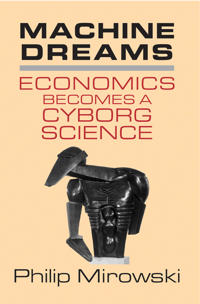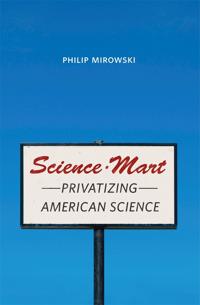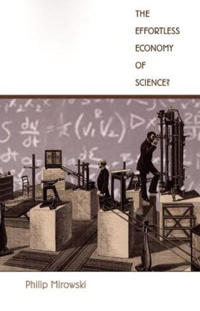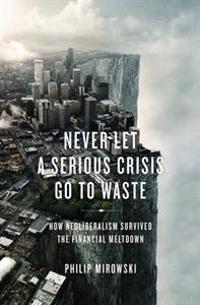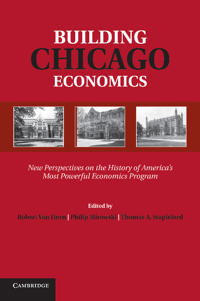Machine Dreams (Pocket)
avPhilip Mirowski
ISBN: 9780521775267 - UTGIVEN: 200112This was the first cross-over book into the history of science written by an historian of economics. It shows how 'history of technology' can be integrated with the history of economic ideas. The analysis combines Cold War history with the history of postwar economics in America and later elsewhere[...]
Science-Mart (Inbunden)
avPhilip Mirowski
ISBN: 9780674046467 - UTGIVEN: 201104This trenchant study analyzes the rise and decline in the quality and format of science in America since World War II. During the Cold War, the U.S. government amply funded basic research in science and medicine. Starting in the 1980s, however, this support began to decline and for-profit corporati[...]
The Effortless Economy of Science? (Häftad)
avPhilip Mirowski
ISBN: 9780822333227 - UTGIVEN: 200409A leading scholar of the history and philosophy of economic thought, Philip Mirowski argues that there has been a top-to-bottom transformation in how scientific research is organized and funded in Western countries over the past two decades and that these changes necessitate a reexamination of the w[...]
Never Let a Serious Crisis Go to Waste (Inbunden)
avPhilip Mirowski
ISBN: 9781781680797 - UTGIVEN: 201307At the onset of the Great Recession, as house prices sank and joblessness soared, many commentators thought that neoliberalism itself was in its death throes. And yet it seems that - post-apocalypse - we've woken into a second nightmare more ghastly than the first: a political class still blaming go[...]
Building Chicago Economics (Pocket)
avRobert (EDT) Van Horn, Philip (EDT) Mirowski, Thomas A. (EDT) Stapleford
ISBN: 9781107616431 - UTGIVEN: 2013-08Over the past forty years, economists associated with the University of Chicago have won more than one-third of the Nobel prizes awarded in their discipline and have been major influences on American public policy. Building Chicago Economics presents the first collective attempt by social science hi[...]

